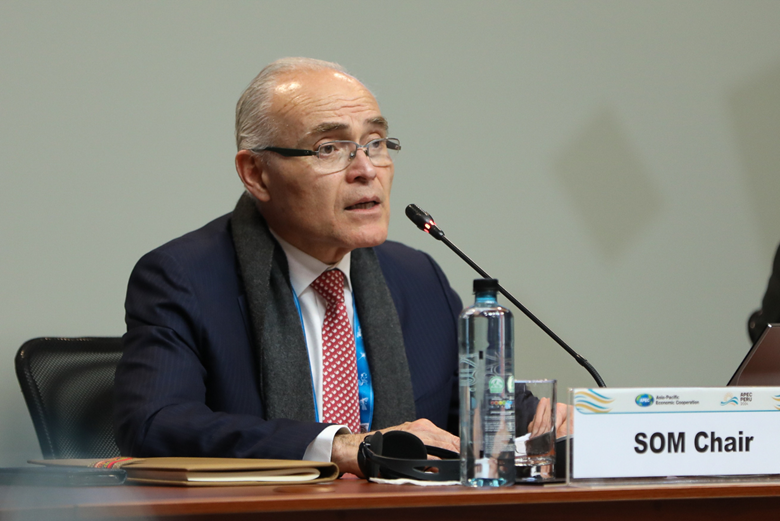Senior Officials Firming International Cooperation Amid Global Uncertainties

Reaffirming their commitment to continue fostering inclusive, sustainable and interconnected growth amid climate change and geoeconomic fragmentation, senior officials from the 21 APEC member economies are convening in Lima, firming cooperation and setting the stage for the upcoming APEC Economic Leaders’ Week in November.
“When we first convened in Lima in March earlier this year, we set out on a path defined by our theme for this year, Empower. Include. Grow.,” said Ambassador Carlos Vasquez, the 2024 Chair of APEC Senior Officials’ Meeting in his opening remarks at the meeting on Saturday. “Since then, our shared commitment has been unwavering, and our progress has been remarkable.”
“When we met again in Arequipa, a city that symbolizes resilience and cultural heritage, we further strengthened our resolve as we adopted the Arequipa Goals. These goals, closely aligned with the APEC Putrajaya Vision 2040 and other key initiatives, have laid a robust foundation for promoting equality and inclusion, particularly for people with disabilities, across the APEC region,” Ambassador Vasquez added.
Senior officials review the outcomes of several key ministerial meetings held earlier this year. Notably, the energy ministers approved the APEC Policy Guidelines to Develop and Implement Clean and Low-Carbon Hydrogen Policy Frameworks in the Asia-Pacific. This document is expected to play a pivotal role in the region's energy transition efforts, particularly in promoting the development of low-carbon hydrogen.
In Trujillo, food security ministers endorsed the Trujillo Principles for Preventing and Reducing Food Loss and Waste. These principles aim to enhance regional food security through strengthened institutional frameworks and innovation.
Furthermore, health ministers issued a joint statement, underscoring APEC's commitment to building sustainable and resilient health systems across the region.
Senior officials are seeking to advance trade and investment for inclusive and interconnected growth, addressing emerging issues such as inclusive trade, digital economy, sustainability and resilience.
Senior officials also exchange views on APEC’s work this year to promote the transition of informal economic actors to the formal economy. This groundbreaking initiative is designed to guide member economies in supporting informal workers and businesses as they move toward formalization, enhancing their access to global markets. Emphasis is on the role of innovation and digitalization in facilitating this transition.
“This year, we have seen Peru’s efforts and approaches in including more stakeholders in our discussions, making sure we truly listen to diverse voices while we address challenges from climate change to digital technology and artificial intelligence,” said Dr Rebecca Sta Maria, the executive director of the APEC Secretariat. “This must continue.”
“When there is uncertainty, it is our job, as policymakers and governments to provide the most vulnerable with some degree of certainty, and this is precisely where APEC stands out. Ours is a forum that brings us together to learn, share and work,” Dr Sta Maria continued.
Preceding the APEC Economic Leaders’ Week in November, Peru will host a High-Level Dialogue on Mining and Small and Medium Enterprises Ministerial in September, as well as Finance Ministers’ Meeting in October.
For further details, please contact:
APEC Media at [email protected]

